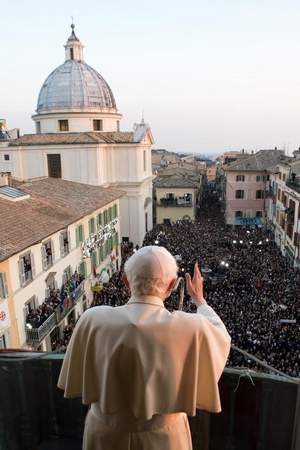John Thavis Column: 7 Things the Next Pope Should Do
By John Thavis
Let’s hope the Roman Catholic cardinals were listening closely to Pope Benedict when he addressed them a few hours before resigning Feb. 28, because he sent an important signal about change in the church. By describing the church as a “living reality” able to transform itself and adapt to the times, the pope was inviting cardinals to pick up on the spirit of his historic decision to retire at age 85. Many in Rome believe that as the cardinals meet this week in their run-up to the conclave, they should — like the pope has done — consider some bold changes in the way Benedict’s successor carries out his ministry. In effect, the cardinals have an opportunity to revise the pope’s job description. And there’s an appetite for change even inside the Vatican, particularly when it comes to the way the pope manages his bureaucratic apparatus, the Roman Curia. Based on ideas Vatican officials have floated in conversations during the last two weeks, here are seven relatively simple steps the next pope could take to streamline and improve governance at the heart of the church: • 1. Bring in his own team. Newly elected popes habitually leave the Roman Curia heads in place for years, in part because they don’t want to be seen as “rocking the boat.” But this only makes it more difficult to change policies and challenge entrenched attitudes. The next pope should thank the existing team of Vatican officials for their service, and then send them home. • 2. Limit terms for Roman Curia officials to no more than five years. This would ensure that they understand their shift at the Vatican is truly a time of service to the church, not an opportunity for career-building. Term limits would also bring younger people to the Vatican. At present, heads of major Vatican offices often come into their jobs at an older age and serve until retirement. Curia appointments should not be seen as a life sentence. • 3. Initiate weekly Cabinet-style meetings among Vatican department heads. Rather incredibly, such meetings are rarely held today, and that fact helps explain why Roman Curia officials often give the impression they’re not on the same page. • 4. Flip the proportion of Italians in the Curia. Italians still dominate almost every Vatican office, and Pope Benedict actually “re-Italianized” some sections of the Roman Curia. If Italians make up 60 percent of the Curia today, for example, reducing them to 40 percent would create a space for real internationalization. It would also help reduce the Vatican’s excessive focus on Italian political and social affairs. • 5. Bring more women to Vatican positions, across the entire Curia and at the executive level. Women scratched the Vatican’s “glass ceiling” years ago, but have not been able to break through to the decision-making level. The explanation has been that the power to make binding decisions in the Roman Curia is linked to the priesthood. That seems to be an excessively clerical vision of the role of the Curia, and a pope could easily change it. He needs to have women's input, and he needs to show he trusts their judgment. • 6. Expand the “ad limina” format to include laypeople. Every pope spends much of his working day meeting with bishops from around the world, who come to Rome periodically to report on their dioceses. But the pope rarely sits down with lay Catholics from those same dioceses. That needs to change. • 7. Reform — or perhaps even suppress — the Vatican bank. Some have questioned why the Vatican needs to be in the banking business at all. The Vatican, no doubt, does not want to completely lose its banking autonomy, but a new pope should take a bold move to restore credibility and transparency in financial affairs. All of these changes could be made quickly, and without particular trauma, by a new pontiff. They would go a long way in showing the world that Benedict’s resignation is not just an isolated act, but the start of some creative thinking.
|
.
Any original material on these pages is copyright © BishopAccountability.org 2004. Reproduce freely with attribution.
